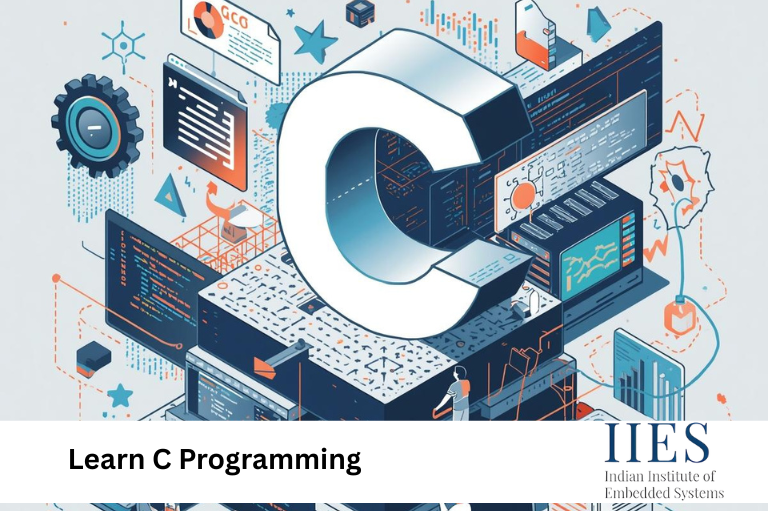What Makes Learning C So Important
Before jumping into Python or Java, it is important to understand how computers execute instructions.
The C programming language bridges the gap between human logic and machine-level execution.
With C, you manage memory manually, use pointers to access data directly, and gain a real understanding
of memory management in C. This control builds a strong foundation for writing optimized and reliable programs.

C Teaches You How Computers Work
C takes you very close to how hardware operates. When you learn C, you see how pointers, variables,
and stack and heap memory interact during program execution.
Example – Understanding Pointers in C
#include
int main() {
int number = 10;
int *ptr = &number;
printf("Value: %d, Address: %p\n", *ptr, ptr);
return 0;
}
This small program demonstrates pointers in C. Pointers are variables that store memory addresses and allow
you to manipulate data directly in memory. Understanding pointers gives you deep insight into memory management
and program behavior.
C Builds a Strong Foundation for All Languages
Most modern languages, such as C++, Java, C#, Go, Rust, and even Python internals, are derived from C.
When you learn the C programming language, you are learning the foundation upon which all these languages are built.
Once you understand C language fundamentals, other languages become easier to learn.
- Functions, loops, and conditionals
- Pointers and arrays
- Stack and heap memory
- Compilation and linking
All these start with C. When you start programming in C, you will understand any other language more quickly and with more confidence.

C Helps You Write Efficient Code
C does not offer automatic memory management or dynamic typing. You are responsible for every byte of memory your program uses.
By handling memory management in C, you learn to write smaller, faster, and cleaner code.
You develop the habit of optimizing both time and space complexity early in your career.
Comparison – C vs High-Level Languages
| Feature | High-Level Languages | C Language |
| Memory Control | Automatic (handled by garbage collector) | Manual using malloc and free |
| Execution Speed | Slower | Faster |
| Error Handling | Managed automatically | Manual debugging |
| Efficiency | Moderate | High |
Learn C for Embedded Systems and System-Level Development
If you are interested in IoT, robotics, or firmware programming, you need Embedded C.
C remains the primary language used in microcontrollers, operating systems, compilers, and device drivers.
- Write code for hardware with limited memory
- Interface sensors, motors, and modules directly
- Understand low-level architecture and communication
For engineers aiming for embedded or systems careers, C programming is an essential skill.
C Improves Problem Solving and Debugging Skills
C does not simplify problems for you. It has no automatic garbage collector or high-level abstractions.
You are responsible for finding and fixing your own bugs.
- Develops discipline and analytical thinking
- Improves debugging through memory tracing
- Enhances understanding of data flow and logic

You Appreciate High-Level Languages After Learning C
After you have worked with manual memory allocation, pointers, and low-level logic,
you will realize how much easier Python or Java feels.
Learning C programming makes you appreciate the abstraction that high-level languages provide,
because you understand what is hidden beneath.
Summary – Why Learn C Programming First
| Aspect | Benefit |
| Fundamentals | Builds a strong programming foundation |
| Performance | Produces faster and efficient code |
| Memory Control | Teaches direct memory management |
| Career Scope | Opens doors to embedded and systems programming |
| Transferable Skills | Makes learning new languages easier |
Final Thoughts
Learning the C programming language is not old-fashioned. It is about building real programming instincts and
understanding how computers actually work. When you understand pointers, memory management, and system-level programming,
every other language becomes easier to master.
To go beyond being a coder and truly understand the machine, start with C. Once you master the machine,
every other language will feel like a superpower.




